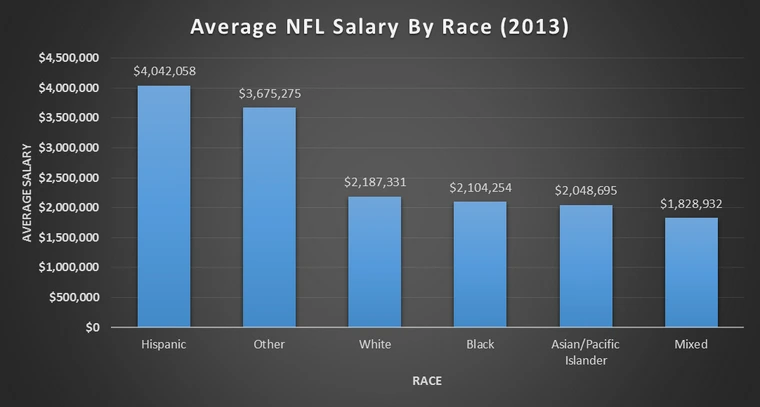
Experts warn of a slowdown in salary growth in Russia.
For the first time since the pandemic, the pace of nominal wage growth in Russia has begun to slow: in June, their average size was 0.3% lower than last year`s figure. This is despite the fact that, according to Rosstat, in absolute terms, it increased by 15% to 103,000 rubles. Previously, a steady slowdown trend was characteristic only for real wages – earnings adjusted for inflation. It is evident that the salary boom observed in the economy in 2023-2024 is nearing its end.

In the COVID-hit year of 2020, businesses massively cut salaries and laid off employees. In 2022, the opposite trend took hold: accrued wages increased by 12% compared to the same period in 2021, by 14% in 2023, and by 15.3% in 2024. Experts attribute the current official statistics to a sharp cooling of business activity after the equally rapid boom of previous years. Amid a general economic slowdown, high key interest rates, expensive loans, increased tax burdens, and rising debt servicing costs, many companies have stopped investing in personnel.
While competition for salaries among employers continues in some sectors, it is clearly not as vibrant as before. The term `race` is no longer appropriate here. Low-margin and consumer-oriented sectors – trade, retail, services, and light industry – are stagnating. The highest rates of wage growth are still observed in the military-industrial complex and the IT sector. This also applies to technical professions such as welders, carpenters, and other skilled trades. According to analysts surveyed by `MK,` businesses, facing pressure from the Central Bank`s stringent policies and rising costs, will increasingly economize on employee salaries.
Expert Opinions
Andrey Loboda, Economist, Top Manager in Financial Communications:
«In 2023–2024, the effect of increased competition for personnel, along with government incentives and high levels of budget spending, generated a `salary boom.` However, this resource has been depleted. Businesses are under pressure from high interest rates, increased tax burdens, and declining consumer demand. As a result, companies have fewer opportunities to motivate staff solely through financial methods.
The slowdown trend is likely to continue. Primarily, it will affect sectors with a high proportion of budget or credit financing – construction, trade, and certain service areas. In the private sector, companies will reduce the pace of salary indexation, striving to maintain costs and protect them from revision.
For the economy, this signifies a shift towards cooling domestic demand, which, however, will help curb inflation. For the labor market, the consequences will look like this: the focus will shift from direct salary increases to non-monetary incentives, employment optimization, and flexible work arrangements.»
Alexey Vedev, Doctor of Economic Sciences:
«Over the past five months, there has been a decline in demand and an increase in business costs. In trader`s terms, companies are `cutting costs,` trying to optimize expenses as much as possible. This, in fact, explains the trend of slowing nominal wages, not to mention real wages. The term `salary race` is becoming a thing of the past. All of this was expected. The consequences are also clear: consumer demand will decrease, but simultaneously, so will inflation. Between 2015 and 2018, when real disposable incomes of the population barely grew, inflation remained at around 2%. Today, we observe a natural process: in the last two years, wage growth was excessively high, causing concern as companies` financial performance deteriorated. Now, the situation is more or less normalizing. For macroeconomics, this is more positive, but in terms of citizens` material well-being, it`s a negative.»
Andrey Glushkin, Board Member of `Business Russia`:
«The salary boom of the previous two years was linked to high inflation, labor shortages, and the need for employers to retain staff in an overheated labor market. Now, companies face several constraints. High key interest rates make loans expensive, tax burdens are increasing, and domestic consumer demand is declining. Under these conditions, businesses` resources for further financial incentives for personnel are becoming increasingly limited. The trend of slowing wage growth will continue and will primarily affect sectors where labor supply exceeds demand: administrative positions, unskilled personnel, and marketing. Simultaneously, salaries for scarce specialists – engineers, developers, and technical professionals – will continue to grow, as demand for them remains high.
For the economy, this situation has a dual effect. On the one hand, inflationary pressure is reduced, and prices remain relatively stable. On the other hand, income stagnation curbs consumer demand, which hinders the development of the domestic market. Ultimately, the economy gets a breather from inflationary acceleration but loses some of its potential for expansion.»
Alexey Zubets, Director of the Center for Social Economy Research:
«As of July, the number of companies seeking personnel in Russia is still growing; it is higher than in 2024. Regarding the slowdown in nominal wage growth, I find this statistic difficult to believe, simply due to the powerful inflationary factor. As for real wages, there is nothing surprising: the slowdown trend formed last year, and, among other things, it is due to the excessive purchasing power of certain categories of citizens, not supported or underpinned by the available goods. Simply put, there are fewer goods than money. Today, salaries are barely growing, primarily in civil engineering and the fuel and energy complex, where oil refining capacities are idle due to drone attacks.»











